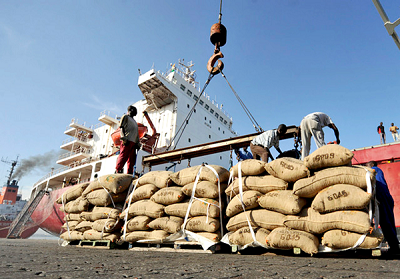COCOBOD Rules out Syndicated Loan for 2025/2026 Crop Season Amid Global Cocoa Shortage
The Ghana Cocoa Board (COCOBOD) has ruled out plans to secure a syndicated loan to finance cocoa purchases for the 2025/2026 crop season, marking a significant departure from a long-standing financing model used by the country’s cocoa sector.
According to the Head of Public Affairs at COCOBOD, Jerome Kwaku Sam, the decision stems from ongoing global cocoa supply shortages, which have disrupted market dynamics and reduced the need for pre-financing.
“We’re not doing syndication. To be very honest, last year [2024], we didn’t do syndication, and this year [2025], we’re not doing syndication,” Mr Sam disclosed during an interview on Monday, August 4, 2025.
He further explained that the prevailing global shortage of cocoa beans had altered the traditional procurement and financing strategy, adding that bypassing syndication is also part of broader efforts to reduce operational costs.
“We’re not doing syndication, whereby we’re going to incur additional expenses and what have you. That is out of the system or table for now,” he stressed.
COCOBOD’s latest position contrasts with Ghana’s historical reliance on annual syndicated loans from a consortium of international banks to pre-finance cocoa purchases at the start of each crop season — a system credited with sustaining timely payments to farmers and ensuring liquidity across the value chain.
The announcement follows a recent press briefing by the Minister for Finance, Dr. Cassiel Ato Forson, who acknowledged stakeholder concerns about the sustainability of the syndicated loan model. While he noted that the current financing framework would be maintained for the time being, COCOBOD’s remarks suggest a shift in operational policy at the institutional level.
The move comes as the global cocoa market grapples with supply constraints, driven by poor weather conditions and disease outbreaks in major producing countries. The resulting tightness in supply has significantly lifted international cocoa prices, easing some of the financing pressure on producer nations like Ghana.
Analysts say COCOBOD’s move may reflect a broader strategy to reposition the cocoa sector amid evolving market conditions, even as questions remain over the long-term implications for liquidity, farmer payments, and export volumes.








